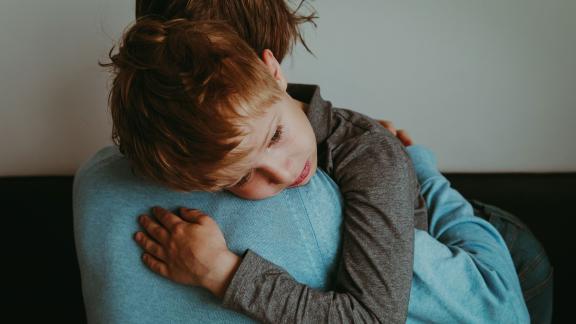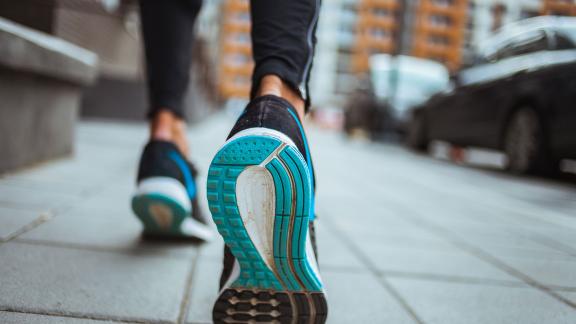Welsh NHS Confederation response to the Children, Young People and Education Committee consultation on the Residential Outdoor Education (Wales) Bill
Introduction
The Welsh NHS Confederation welcomes the opportunity to respond to the Children, Young People and Education Committee consultation on the Residential Outdoor Education (Wales) Bill.
The Welsh NHS Confederation represents the seven Local Health Boards, three NHS Trusts (Velindre University NHS Trust, Welsh Ambulance Services NHS Trust and Public Health Wales NHS Trust), and two Special Health Authorities (Digital Health and Care Wales and Health Education and Improvement Wales). The twelve organisations make up our membership. We also host NHS Wales Employers.
How important is residential outdoor education to children and young people’s development?
NHS leaders recognise the importance of outdoor education in children’s and young people’s development. Outdoor education increases levels of physical activity and wellbeing and helps to expand the mind, prompting more questions and intrigue as opposed to one simple classroom structure. Research shows outdoor education has resulted in increased educational focus for children. Providing opportunities for hands on learning experiences allows children to socialise in an alternative environment. This supports the development of vital life skills, including social communication skills, building relationships as well as building resilience to deal with challenging and unfamiliar tasks and situations.
Furthermore, one of the main health benefits to children experiencing outdoor education include nature connectedness, self-motivation and teamwork, and improved life chances. Outdoor education contributes to narrowing the attainment gap in our society and has been shown to develop pro-environment attitudes and behaviours.
Active, outdoor learning establishes healthy habits during childhood. These habits may not be established within the child’s family and therefore outdoor education provides a testing, experimentation opportunity for children. For example, eco-therapy allows children and young people to explore their thoughts and feelings through engaging in nature. Outdoor residential visits positively affect a young person’s ability to tolerate and regulate emotions, and to choose how to behave, in a safe environment. This of course is fundamental at a stage of life when schools, parents and society are demanding self-discipline, focus, engagement, and academic achievement; and a time when external forces and emotions are taking their attention elsewhere, and even an emotionally secure and well-balanced young person may be finding it hard to focus.
The Residential Outdoor Education (Wales) Bill has the potential to support children’s play, including play involving risk challenge and adventure which is increasingly recognised from a public health perspective as important for children’s physical and mental health, especially following the pandemic.
However, there are opportunities for improvement within the Bill to ensure that the needs of all children are met so that they can fully participate in outdoor education activities. For example, it is imperative outdoor activities directly correlate with the school curriculum and physical literacy development and that the Bill addresses the associated financial constraints, geographical limitations, inclusivity of centres and language barriers.
What are the main health benefits to children and young people from experiencing an outdoor education residential?
Most children spend around 40% of their waking time in school which can play a pivotal role in helping to develop children’s positive physical activity behaviours, confidence, and experiences by encouraging being active and shaping their lifelong relationship with physical and outdoor activity. Opportunities in schools also have the potential to remove barriers for those children who do not participate in physical activity during their leisure time, offering universal access to children from across the population, regardless of socio-economic status or ethnicity.
Whole school system approaches involve action across several dimensions (e.g. leadership, policy, curriculum, resources, and environment) leading to a comprehensive strategy that aims to promote physical activity across all aspects of a school's operations. Critical to the whole school approach is the involvement of the whole school community and those organisations and partners that can support it. This would therefore include linking with opportunities for residential outdoor education.
Opportunities for children to build physical literacy are vital for embedding the culture of physical activity within the population of Wales. Children need opportunities to try new things, especially activities that are difficult or expensive to access. Providing these opportunities in a safe environment with little risk of wasting money/ time/ effort allows for the development of skills which cannot be learnt in the classroom, such as taking physical risks, building coordination.
What are the main barriers to children and young people attending a residential outdoor education visit?
The main barriers to children and young people attending a residential outdoor education visit could include:
- Financial constraints: Current costs are a huge barrier, especially considering the current cost of living crisis. Children are the population most at risk from income poverty. Those children who will benefit most from outdoor education are likely to be in the group who cannot access it unless it is free.
- Geographical Limitations: The existence and location of outdoor education centres create barriers to participation.
- Cultural restraints: If it is unusual for children to participate in outdoor education then it will be more difficult for families to participate.
- Risk factors: Worry of parents and teachers, regarding managing potential hazards and danger.
- Discrimination: Those with challenging behaviour are most likely to be excluded from these residential outdoor education experiences.
- Inclusivity of centres: Children with physical and mental disabilities require adaptation to engage in these activities (wheelchair accessibility, accessible transport, adapted equipment, carers to attend etc.)
- Language barriers: For those for whom Welsh/ English are second and third languages there will be barriers to engagement.
- Health reasons.
- Additional learning needs.
- Accessibility for those with disabilities.
- Child anxiety and uncertainty.
- Parental anxiety/uncertainty.
- Curriculum pressures.
- Staffing.
- Admin and paperwork.
- Transport links and costs.
- Availability, access to, and cost of special clothing or equipment.
Should children and young people have the opportunity to undertake an outdoor education residential and, if so, should it be free of charge to all?
Outdoor education should be minimal cost to allow for all children to participate. Travel, equipment, clothing should be provided alongside the cost of the actual residential opportunity.
How can the needs of all children be met so they can fully participate in residential outdoor education? In particular children with physical disabilities, mental health issues including anxiety, and those children with additional learning needs?
Since Covid children are much less confident about staying away from home. If children have not stayed away from home before or they have not done outdoor education before then doing both at once becomes a barrier due to the anxiety of tackling two new things at once. From the findings of the Whole School Approach to Emotional and Mental well-being, relationships are not what they once were between the schools and the families and there is work needed to re-establish those relationships. For children and young people to attend these residential visits, parents and children and young need to completely trust that the school will ensure safety, especially if they will be engaging in new activities, such as kayaking. Building those relationships is vital to a successful outdoor residential visit.
Furthermore, the following may help to reduce parents and children’s anxieties:
- Informing parents of the health and development benefits of participating in residential outdoor activities
- Sharing case studies (videos) of parents and children and young people’s experiences.
- Schools could host an information session so parents can ask questions.
- Complete and share risk assessments.
- Introduce and discuss types of activities in school before going on residential so children know what to expect.
- Clearly link how activities will link to school curriculum and physical literacy development.
Considerations of children with different needs must be prioritised; the physical space should be accessible to those with limited mobility e.g. those with walkers or a wheelchair or having an unsteady gait. The provision of information in advance can reduce anxiety, for Neurodiverse children’s pictures of the space, routes and expected activities can be useful.
It would be helpful if providers of residential outdoor education undertook an Equality Impact Assessment (EIA). An EIA is an evidence-based approach designed to help organisations ensure that their policies, practices, events, and decision-making processes are fair and do not present barriers to participation or disadvantage any protected groups from participation. Providers could also work with key organisations such as the sensory Trust who have produced guidance on making the outdoors accessible.
Views on the Statement that “the Bill will contribute to the Welsh Government’s goals of promoting healthy lifestyles and reducing diabetes by supporting its ‘Healthy Weight, Healthy Wales’s strategy”:
Providing the environment within which all children can experiment with outdoor sports and activities will meet the goals of the healthy weight healthy Wales strategy.
Play and activities in green and outdoor spaces plays a crucial role in enhancing the wellbeing of children, increased physical activity and outdoor play contributes to increased fitness and reduces the risks of childhood obesity. Also, children without much experience of the outdoor environment, residential outdoor education provides insight into a world of employment which may not have occurred to them or their families.
Views on the statement that “the mental health and well-being benefits of outdoor education residential programmes could reduce the demands on child and adolescent mental health services in the near future and could also reduce demands on the wider NHS and health care services in the longer term”.
All children and young people should have access to a range of tools and support for their emotional and mental well-being both at school and at home. Children and young people do not often require dedicated specialist support, but rather school it is about supporting them to understand their own well-being in building resilience and in developing coping mechanisms to manage the everyday stresses and challenges experienced throughout life, as well as in knowing when and how to access support.
Outdoor learning is considered across all areas of learning and experience as part of the new school curriculum. For example, the Health and Well-being Area highlights the importance of regular experiences outdoors to support young people’s physical and mental health. Schools should provide learners with the opportunities for outdoor activities and weekly unstructured time for well-being activities.
We agree with this statement that outdoor education has the potential to lead to better mental health and therefore reduce demand on CAMHS, and wider NHS services. Outdoor education has been shown to help children at risk of being excluded from school to participate and do better at school. CAMHS in Plymouth have an outdoor education 12-week programme for children who are struggling with school – it has been shown to help reduce stress, increase resilience and lead to increased educational engagement. Reducing stress levels can improve mental health outcomes (Wells & Evans, 2003).
Many of the benefits of outdoor education such as improved attention and concentration can support improved educational attainment. Higher educational attainment leads to higher paid jobs which reduces the likelihood of poor health outcomes in the future. This will in turn reduce demand on NHS services.
On its own access to outdoor residential education will not address children and young people’s mental and emotional wellbeing and reduce demands on the NHS. However outdoor education can form a key part of a whole system approach to mental and emotional wellbeing in schools.



